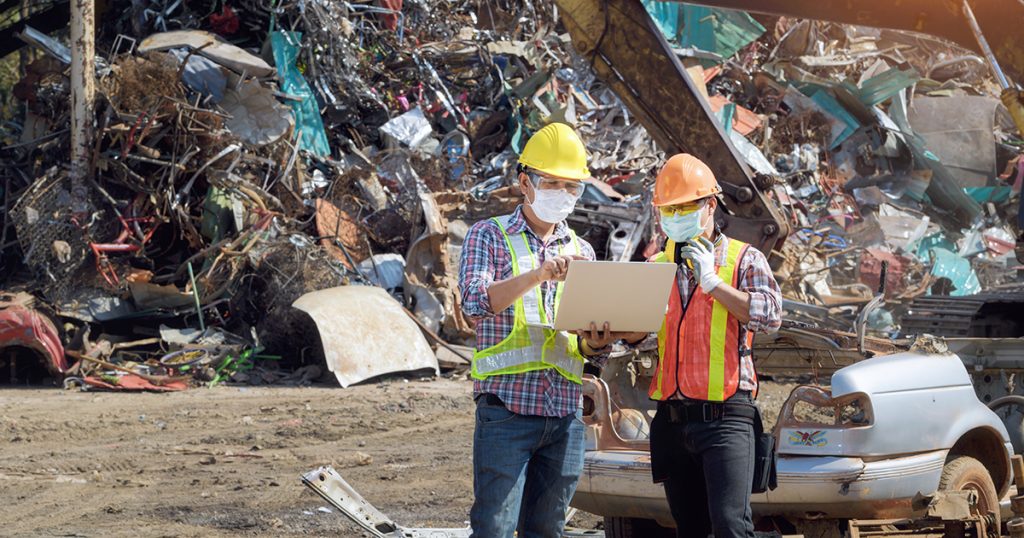10 April, 2025

Metal theft is a problem. Far too often, thieves steal things like catalytic converters or copper cables and sell them for scrap.
To address this, Alberta has a 10-year-old law called the Scrap Metal Dealers and Recyclers Identification Act that requires scrap metal dealers to record “…their home address, show the dealer government-issued ID with personal identifying features such as date of birth, photograph, place of residence.
Further, these individuals must provide detailed information about the vehicle used to transport the metal to the dealer, the make, model, license plate, and colour.”
This information is stored in a government-maintained database that police have access to.
Privacy and enforcement issues
In R v Khairullah, a case against a scrap dealer, the Alberta Court of Justice decided these requirements are unenforceable because they are overly broad and contravene the unreasonable search and seizure provisions of section 8 of the Canadian Charter of Rights and Freedoms. The court ended its analysis there and didn’t consider whether the law violated Alberta’s public sector privacy law.
The Court pointed out that the law required this information to be collected for every innocent person legitimately selling scrap metal, and even on those who had nothing to do with the sale, such as the owner of a borrowed pickup truck used to deliver it.
The court set out several hypothetical situations to guide its reasoning. One of those was “A couple in their 30s are engaged in annual spring cleaning in their yard and residence. They have an abundance of scrap metal from a failed restaurant business. They borrow a friend’s half-ton truck to transport the metal to a dealer for sale and recycling.”
Implications for scrap metal dealers
The Court said: “In all of the foregoing hypotheticals by individual sellers of scrap metal, the dealer is able to obtain and record information as to where each individual lives, what quadrant of the city, the type of vehicle driven to engage in the sale; in the case of one of the sellers, personal health card information; in the case of the other sellers, driver’s license with photographs, and residence address. The seller is also able and required to gather information about third parties, friends, relatives, and neighbours who have loaned their vehicles to the individual sellers who transport the metal to the dealer.”
The Court went on to say: “The foregoing hypothetical scenarios as described by the Court, along with the information concerning how the scrap metal is to be disposed of, according to the official recycling site of the City of Calgary, leads the Court to conclude that this is not a voluntary regime for lawful disposal of scrap metal. The Court concludes the data collected that I have previously reviewed breaches privacy interests of individuals who simply wish to dispose lawfully of metal. This is unreasonable.”
“The additional issue is that the statute not only mandates gathering of this personal information but requires the storing of this personal information in a database, with no overriding Charter protection, requiring law enforcement to have reasonable and probable grounds to search the database. All of this is unreasonable and overbroad.”
“If personal data of individuals is to be retained for future use of law enforcement, then law enforcement should have reasonable and probable grounds in order to actually search the database of the information stored. None of this is present in the legislation in terms of protection.”
Bottom line: legal compliance
This decision doesn’t mean that a less invasive requirement to collect information about those selling scrap might be a reasonable way to deter metal theft and catch sellers of stolen metal. But to comply with the Charter and privacy laws less information should be recorded, it should be kept for only a short period of time, and police access would be limited.
In general, it would have to be shown that there is an appropriate balance between deterring theft and the reasonable expectation of privacy for innocent people.
David Canton is a business lawyer and trademark agent at Harrison Pensa with a practice focusing on technology, privacy law, technology companies and intellectual property. Connect with David on LinkedIn, Bluesky, and Twitter.
Image credit: ©saravut – stock.adobe.com





